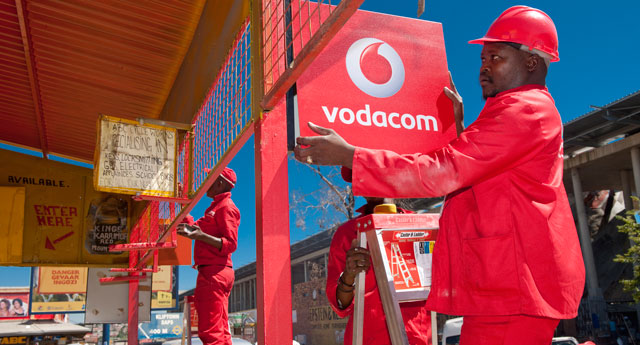
Vodacom, the top-rated company in the Reputation Institute’s annual National RepTrak Pulse survey last year, has fared “particularly poorly” in the 2014 edition of the survey, falling to sixth position and behind rival MTN.
The survey found that there has been a “bloodbath” in company reputations, with the exception of Woolworths, which has emerged stronger than it did in 2013. Woolworths’ reputation strengthened slightly from 73,98 to 74,31 points. It led the field on all reputation dimensions: leadership, citizenship, governance, workplace, innovation, products/services and performance.
“Last year’s top company, Vodacom, fared particularly poorly in 2014, dropping a massive 9,35 points to sixth position in the table, one position below its major competitor, MTN,” the report says.
The National RepTrak Pulse survey measures the reputation of the largest listed South African companies based on revenue and which are engaged in commercial activities, have a reasonable amount of familiarity with the general public and are not wholly owned subsidiaries of other companies.
Reputation Institute country manager Trevor Ndlazi said the drop in Vodacom’s reputation — from a strong/robust score of 74,17 in 2013 to an average/moderate rating of 64,83 in 2014 — is a huge drop and is largely attributable to its dispute with communications regulator Icasa over mobile termination rates. Both Vodacom and MTN challenged Icasa’s call termination rate regulations at the high court.
As was the case with last year’s survey, mining companies were included and scored poorly in the reputation stakes, the institute said. Woolworths was the only company to score above 70 points, giving it a strong and robust reputation.
Ndlazi said the biggest driver of reputation in South Africa in 2014 is products and services at 15,2%, with citizenship only slightly behind at 15.0%. “Product and services, citizenship, financial performance and innovation explain almost 60% of reputation, while workplace, governance and leadership made up just under 40% of what drives reputation this year.”
He said that to win the support and trust of consumers, companies have to engage them in all seven dimensions and excel and communicate about each one.
“The key element in this year’s survey is the very large declines – from six points and more – in reputations of most of the companies bar two,” he added. “This is a big concern. Companies are losing credibility where they need it most – in the consumer sector. In this scenario, if government is to decide that regulation is needed, consumers will complacently accept it since they have lost trust in companies anyway. What is needed is either a new model of doing business, or for companies to take actions that regain the trust of consumers.”
The financial services sector also fared poorly. Even though Standard Bank jumped from seventh to second position on the table, its 2014 score of 68,77 points was only marginally better than the 2013 score of 68,5, the Reputation Institute said.
First National Bank dropped sharply — by 9,08 points from last year. Nedbank and Absa fell by 4,18 and 4,39 points respectively.
The insurance industry also performed poorly. Old Mutual, for example, was down by 8,54 points and Sanlam by 8,98 points.
The survey was conducted in January and February and involved 1 462 respondents, from whom 3 860 rates were obtained. Respondents were balanced based on age and gender. — (c) 2014 NewsCentral Media




